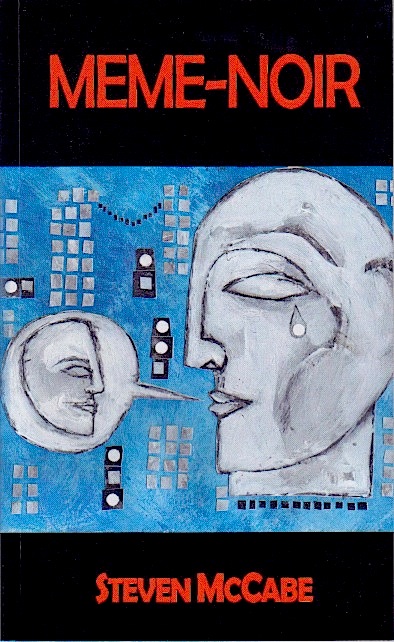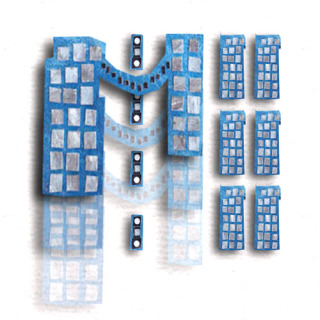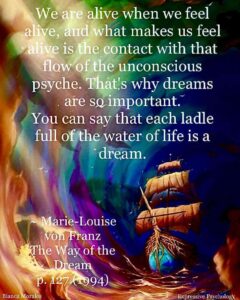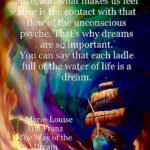 Wherein lies the power of writing? Of story? When does a story become a meaningful experience? Prose become poetry? Writing become art?
Wherein lies the power of writing? Of story? When does a story become a meaningful experience? Prose become poetry? Writing become art?
Is good writing simply the ability to string words together in a logical way that always makes sense? Or is it something less horizontal and linear? Something deep and dense, high and elevating? Complex and personal? The answer to these questions has less to do with your left-brained cognitive abilities — skills typically studied on IQ tests — than you might imagine. It’s more about your right brain’s preference for images and emotions.
Plato said art is mimetic by nature — an imitation of life — whereas ideas are the ultimate reality. For him, philosophy was superior to poetry. But his student, Aristotle, preferred poetry for the very reason that it mimics nature. He believed life is the ultimate reality, and that poetry reflects it.
Good writing, whether prose or poetry, resonates in your psyche because it is grounded in life. You might admire a writer’s intellectual cleverness with ideas and words, you might even try to imitate it. But a story or piece of writing will not become meaningful and memorable unless it stirs up images, memories, moods, and emotions in the same way dreams and myths do: by mirroring the archetypal truths of your soul in ways that move you. Interior experiences like this are embodied expressions of your nature in its essence, human nature, both physical and archetypal.
Meme-Noir (a play on the word ‘memoir’), is a remarkable new book by Toronto-based author, poet, artist, and teacher Steven McCabe that illustrates this connection perfectly. All of McCabe’s work — now including eight books, a blog called Poemimage, paintings, poems, drawings, videos, murals, and multi-media works — tell stories with a powerful psychological impact.
Imagine you are standing alone under a black-domed sky splashed with a panoply of starry constellations. Each has its own myths, cluster of personal associations, and visual and emotional nuances. This is how McCabe describes his inspiration for Meme-Noir:
“I emailed myself stories and anecdotes
Over an eight year period.
During discussions with the publisher (then),
For now the company has been sold,
I experienced a moment of revelation.
Luciano Iacobelli looked over my first ten pages
And said,
‘No, no, no, no, no.’
‘No theme, no thesis,
Just give me the puzzle pieces.’
He gestured with his hands and said,
‘Constellations!’
I was left to interpret ‘constellations’ as I wished.
I came up with the idea of vignettes comprising constellations.
Each vignette in a constellation
Has one key word in common.
Each series of vignettes
Covers various time periods,
Within a constellation.
So, it’s a non-linear timeline.”
 This excerpt is from his beautifully illustrated post about Meme-Noir on his blog. Following is a sampling of three vignettes from the book. Each is a unique star in a particular constellation of his psyche centered around the key word “float.” As you read, notice the images and emotions the words elicit from you.
This excerpt is from his beautifully illustrated post about Meme-Noir on his blog. Following is a sampling of three vignettes from the book. Each is a unique star in a particular constellation of his psyche centered around the key word “float.” As you read, notice the images and emotions the words elicit from you.
“Around dusk I saw a ball of light float slowly past. It was bigger than a basketball but soft as a dandelion puff. Later I saw another one outside the window, in the pitch-black countryside. The couple visiting from Toronto said, “We saw them all the way here.” I stayed overnight at their place when they were students. In the morning I did a shoulder stand and above me a tiny star exploded as soon as it appeared. Light shot everywhere.” p.12
“My brother asked older ladies in the department store for directions – while forming a saliva bubble on his tongue – and floating it out his mouth. “Are you alright, son?” When George Wallace, the segregationist governor of Alabama, ran for President in the Democratic Primaries he gave a press conference downtown. We leaned against the wall. Wallace walked towards the exit with men on either side. My brother stomped one leg like a pony. Wallace froze, with a startled expression. My brother leaned forward, at the hips, and floated a bubble into the air. Wallace stared for two seconds and continued walking. My brothers and I laughed, all the way home, down Canal Avenue.” p.13
“I substitute their names when I read art history books aloud as they paint: Myra developed Cubism, with George Braque, in the early 20 th Century – Omar painted a melting pocket watch, defining Surrealism – Janine introduced Pointillism, dabbing thousands of dots. I personalize the text, so it floats – without dragging – after their long week of data coming at them like a flash flood.” p. 13
This is not just art for public consumption. It’s an example of how a man is alchemically transforming the raw elements of his life into a work of art. What floated through your mind as you read?
Meme-Noir is a fresh, original, page-turning tour de force of a psychological memoir. McCabe as storyteller is an enormously likable lover of life who survives daunting challenges with forthrightness, intelligence, compassion and wit, sustained by his ability to lose and then find himself again in art.
The style is unlike anything you’ve read before. Described as a “journey of addictive linguistic charm” (from a blurb by Pierre L’Abbe), it twists and turns through the subterranean rabbit warren of McCabe’s artistic sensibility to trace the transformational odyssey of a wounded soul trying to make its way home.
I highly recommend Meme-Noir. You can order it here, and here. Never More Together, McCabe’s visual, wordless poem about the harsh treatment of truth in a society ruled by fear, can be found here. To watch the poet speak about Never More Together, check out this Youtube video.
Image credits: All images created by Steven McCabe. Reproduced here with permission.
Jean Raffa’s The Bridge to Wholeness and Dream Theatres of the Soul are at Amazon. E-book versions are also at Kobo, Barnes And Noble and Smashwords. Healing the Sacred Divide can be found at Amazon and Larson Publications, Inc. Watch for her new book, The Soul’s Twins, to be launched later this year.






8 Responses
Thank you so very much Jeanie for posting this generous review. I appreciate your time, interest, & insights and how you contextualize in ways that reveal new connections to me. I’m reading it again as if reading about somebody else, learning & receiving fuel for what lies ahead. With gratitude, Steven
You’re most welcome, Steven. I loved reading and writing about this book. I’m fascinated by the creative process, and thrilled when I read something completely unique and original. Your work inspires me to think deeper and work harder to convey ideas that resonate with the entire psyche, not just the left side of my brain. Thank you for that. Jeanie
Thanks Jeanie – I loved the excerpts of McCabe’s poetry and I’ll definitely listen to his YouTube soon. I’m always amazed at the power of the pen, and also bedazzled when it becomes like a sword, cutting through to the bone, evoking extraordinary feeling.
I think you’ll like his work, Susan. I love your description of the power of the pen!
Wherei n lies the power of writing? Of story? When does a story become a meaningful experience? Prose become poetry? Writing become art? ……. truly amazing whole blog
O Pen = Zero Pen = Timeless paper Time Words = right and left brain in harmony is Poetry , Art , meaningful experience
Love all. with regards to Divine Jean
ps …… it will be a weekly prayer visiting your Blog .
Thank you, Ram. I’m humbled by your kind words. I love your statement: “right and left brain in harmony is Poetry , Art , meaningful experience.” Yes it is. Striving to unite opposites and become whole and harmonious is our divine purpose, our highest art, our magnum opus as human beings. It is a blessing to know you. Jeanie
Thanks Jean Raffa. As a reader who also loved the art in Steven’s Meme-Noir, it is wonderful to see another’s well thought out appreciative response to it. An Awesome tribute indeed. Both your review and Steven’s book are certainly inspirational thought exercises for me. And Steven is also such a cool dude.
Thank you for your kind words about this review, Joe. I’m glad you enjoyed it. I really like original and inspirational art and thought exercises too. I guess that’s why I’m a fan of Steven’s work. I own a painting of his that’s featured in my book, The Soul’s Twins, and hangs on the wall next to my desk. It provides inspiration and pleasure every time I look at it!